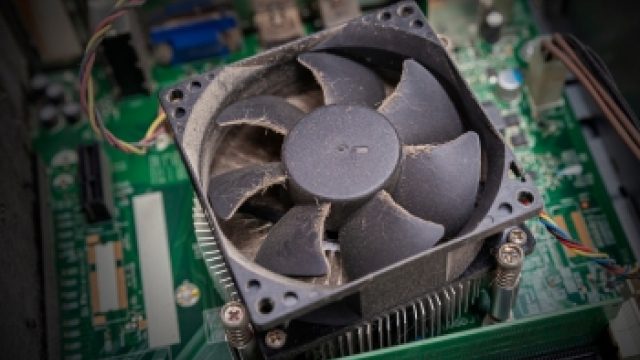When it comes to getting the best out of your computer, a crucial component that often goes overlooked is the CPU cooler. You might wonder why it’s essential or even question its impact on your system’s overall performance. Well, let’s dive in and uncover the importance of CPU coolers in keeping your machine running smoothly.
Before we explore the factors affecting the longevity of CPU coolers, let’s debunk some common misconceptions. There’s more to a CPU cooler’s life than just its initial installation. Understanding these misconceptions will help you make better choices for your system.
The lifespan of a CPU cooler depends on various factors. In this section, we’ll take a closer look at what influences the cooler’s longevity, helping you make informed decisions about your cooling solution.
Understanding CPU Cooler Types and Components
There are different types of CPU coolers available, each with its strengths and weaknesses. Let’s explore the three main types: air, liquid, and hybrid coolers, so you can determine which one suits your needs best.
To understand how CPU coolers work and how they impact longevity, it’s crucial to familiarize ourselves with their key components and the materials used in their construction. This knowledge will empower you to make an informed decision when choosing the right cooler for your CPU.
The type of CPU cooler you choose plays a significant role in its lifespan. In this section, we’ll delve into how each type’s design and functionality can affect the cooler’s overall longevity.
Environmental Factors Affecting CPU Cooler Longevity
Temperature is a critical factor that can significantly impact the performance and lifespan of your CPU cooler. We’ll explore the correlation between operating temperatures and cooler efficiency in this section.
Dust and debris might seem insignificant, but their accumulation can lead to decreased cooling efficiency over time. Discover how proper maintenance and cleaning can extend your CPU cooler’s lifespan.
Humidity levels in your environment can also affect your CPU cooler’s lifespan. We’ll examine how humidity can lead to corrosion or rusting, and how to safeguard your cooler against these environmental factors.
Regular Maintenance and Cleaning
Just like any other component in your system, regular cleaning and maintenance are crucial for CPU coolers. Learn why taking care of your cooler is essential for its longevity.
Cleaning a CPU cooler might seem daunting, but with our step-by-step guide, you’ll be able to do it easily and effectively. Following these instructions will help keep your cooler performing at its best.
Knowing how often to clean your CPU cooler is essential. In this section, we’ll recommend cleaning intervals that can extend the life of your cooler and maintain optimal performance.
Related Article: CPU Thermal Pad vs Paste: Maximizing Cooling Efficiency
Overclocking and Its Impact on CPU Cooler Lifespan
Overclocking your CPU can boost its performance, but it comes with its share of considerations, including its impact on the CPU cooler. Let’s delve into the concept of overclocking and its potential benefits.
Overclocking can push your CPU cooler to its limits. We’ll explore the strain it places on the cooler and discuss how to manage this stress to preserve its lifespan.
If you’re eager to overclock your CPU, don’t fret. We’ve got you covered with some handy tips to safely overclock without endangering the health of your CPU cooler.
Quality and Build of CPU Coolers
The quality of your CPU cooler matters significantly in terms of performance and longevity. In this section, we’ll guide you on how to spot the difference between low-quality and high-quality coolers.
Materials used in the construction of CPU coolers can make a world of difference. Learn which materials to look for to ensure your cooler is reliable and long-lasting.
Based on our understanding of cooler types, components, and build materials, we’ll provide recommendations to help you make the right choice when selecting a CPU cooler.
Signs of a Failing CPU Cooler
Your CPU cooler won’t last forever, but knowing the signs of a failing cooler can save you from potential system damage. Let’s go over common symptoms to look out for.
Ignoring a failing CPU cooler can lead to severe consequences for your entire system. We’ll discuss the potential risks and why addressing cooler issues promptly is crucial.
If you find your CPU cooler showing signs of distress, don’t worry. We’ll provide guidance on what steps to take to mitigate the situation and protect your components.
Thermal Paste and Its Role in Cooler Lifespan
Thermal paste is a tiny yet vital element in the cooling process. We’ll explain why its presence and application are crucial for the overall cooling efficiency of your CPU.
As time goes by, thermal paste degrades, impacting the cooler’s effectiveness. Discover how this degradation occurs and what it means for your CPU cooling solution.
Don’t worry about replacing thermal paste; we’ve got you covered with a detailed guide on how to apply and replace it correctly for optimal cooling performance.
Related Article: How to Check If CPU Cooler Is Mounted Properly
Real-Life CPU Cooler Lifespan Examples
Real-life examples provide valuable insights into CPU cooler lifespans. We’ll present case studies of different CPU coolers in various usage scenarios.
By comparing the lifespans of various cooling solutions, you can gain a better understanding of which type might be best suited for your specific needs.
We’ll draw lessons from the real-world examples discussed earlier, offering practical tips to enhance your CPU cooler’s longevity.
Extending the Lifespan of CPU Coolers
Maximizing the lifespan of your CPU cooler isn’t rocket science. We’ll share some simple yet effective tips and tricks to keep your cooler running optimally.
Knowing how to handle and use your CPU cooler properly can significantly impact its longevity. We’ll outline best practices for ensuring your cooler remains in top-notch condition.
When the time comes to upgrade your CPU cooler, you’ll want to do it correctly. We’ll provide a step-by-step guide to ensure a smooth transition to your new cooling solution.
Preventing Common CPU Cooler Issues
Prevention is better than cure, and knowing how to address common CPU cooler issues can save you from future headaches. We’ll help you troubleshoot and fix these problems.
Troubleshooting your CPU cooler can be easier than you think. With our helpful tips, you’ll be able to identify potential issues and address them before they escalate.
If you encounter challenges that are beyond your expertise, don’t worry. We’ll provide resources and suggestions for seeking professional help to keep your CPU cooler in top shape.
Understanding Manufacturer Warranties and Support
Manufacturer warranties can be a lifesaver in case of unexpected cooler failures. We’ll explore typical warranty periods, so you know what to expect from your cooler’s coverage.
Claiming warranty might seem complex, but we’ll walk you through the process step-by-step, ensuring you can claim it effectively when needed.
Manufacturer support can be a valuable resource when you encounter problems with your CPU cooler. We’ll provide guidance on how to make the most of their support services.
Recycling and Disposal of Old CPU Coolers
Old CPU coolers don’t have to end up in landfills. Learn about eco-friendly methods to dispose of your old coolers responsibly.
Recycling old cooling components can contribute to a sustainable future. Discover how you can recycle your old coolers and reduce electronic waste.
By raising awareness about the impact of electronic waste, we can all play a part in safeguarding our environment. We’ll discuss the significance of responsible e-waste management.
Upcoming Advancements in CPU Cooler Technology
The world of CPU cooler technology is ever-evolving. Get a glimpse of the ongoing research and developments that promise exciting advancements in the future.
With future advancements, cooler longevity might experience a significant boost. We’ll explore how these technologies might revolutionize the cooling industry.
As we look ahead to cutting-edge cooling solutions, we’ll offer insights into how you can prepare yourself to make well-informed purchasing decisions when new technologies arrive.
FAQs About How Long can a CPU Cooler Last
How often should I replace CPU cooler?
It is recommended to replace your CPU cooler every 3 to 5 years. Regular maintenance, such as cleaning out dust and reapplying thermal paste, can extend its lifespan.
How long does PC air cooler last?
A well-maintained PC air cooler can last anywhere from 5 to 8 years. However, factors like usage, environmental conditions, and the quality of the cooler can affect its longevity.
What is the lifespan of a cooler?
The lifespan of a CPU cooler varies based on its type and quality. Air coolers can last 5 to 8 years, while liquid coolers might have a shorter lifespan of around 3 to 6 years.
Do CPU coolers go bad?
Yes, over time, CPU coolers can go bad. Dust buildup, fan malfunctions, or pump failures can reduce their effectiveness, leading to increased temperatures and potential damage to the CPU.
What happens when CPU cooler dies?
When a CPU cooler dies or malfunctions, the CPU can overheat, causing system instability, unexpected shutdowns, and even permanent damage to the processor. It is crucial to replace the cooler promptly.
Do coolers ever expire?
Coolers do not have an expiration date, but their effectiveness can diminish over time. Regular maintenance and timely replacement can keep them working optimally for an extended period.
Is cooler better than AC?
Coolers, such as air or liquid CPU coolers, are designed to cool specific components in a computer. Air conditioners (ACs) are used for cooling indoor spaces. Each serves different purposes, and one cannot be directly compared to the other.
Do coolers use a lot of electricity?
Compared to other components in a computer system, CPU coolers consume very little electricity. The power draw of a typical cooler is minimal, and it has a negligible impact on the overall energy consumption of the PC.
How can I make my cooler last longer?
To extend the lifespan of your CPU cooler, ensure regular cleaning to prevent dust buildup, use high-quality thermal paste during installation, and avoid overclocking your CPU excessively, as it can strain the cooler.
Can a CPU cooler be replaced?
Yes, CPU coolers can be replaced. Whether it’s an air cooler or a liquid cooler, you can remove the old one, clean the thermal paste off the CPU, and install a new cooler to keep your processor running cool and safe.
Final Thoughts About How Long can a CPU Cooler Last
The lifespan of a CPU cooler largely depends on several factors, including its type, quality, and maintenance.
On average, a well-maintained air cooler can last between 5 to 8 years, while liquid coolers may have a shorter lifespan of 3 to 6 years. Regular cleaning, proper thermal paste application, and avoiding overclocking can extend the cooler’s longevity.
However, wear and tear, dust buildup, and fan or pump failures can lead to reduced effectiveness over time.
To ensure optimal cooling and prevent potential damage to the CPU, it is advisable to monitor the cooler’s performance and replace it when necessary.


